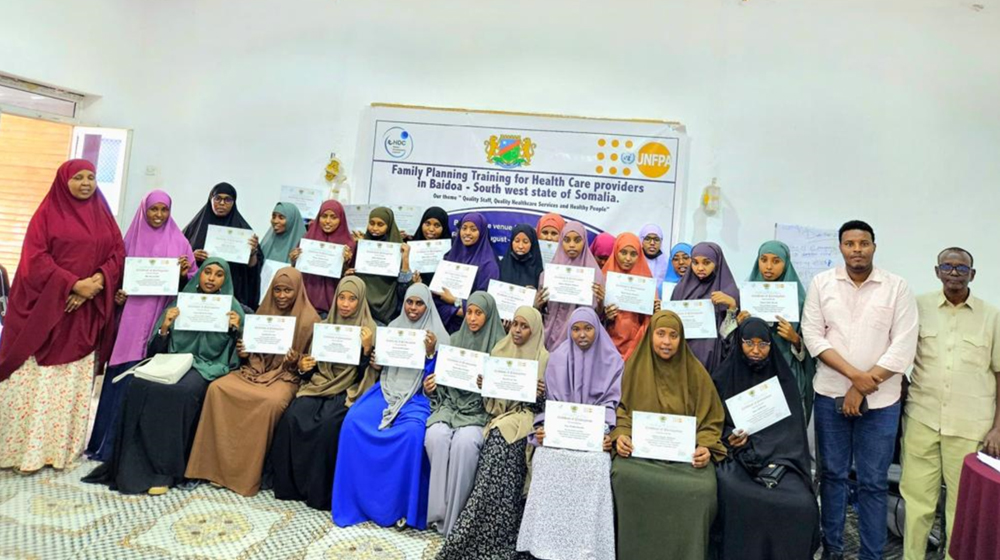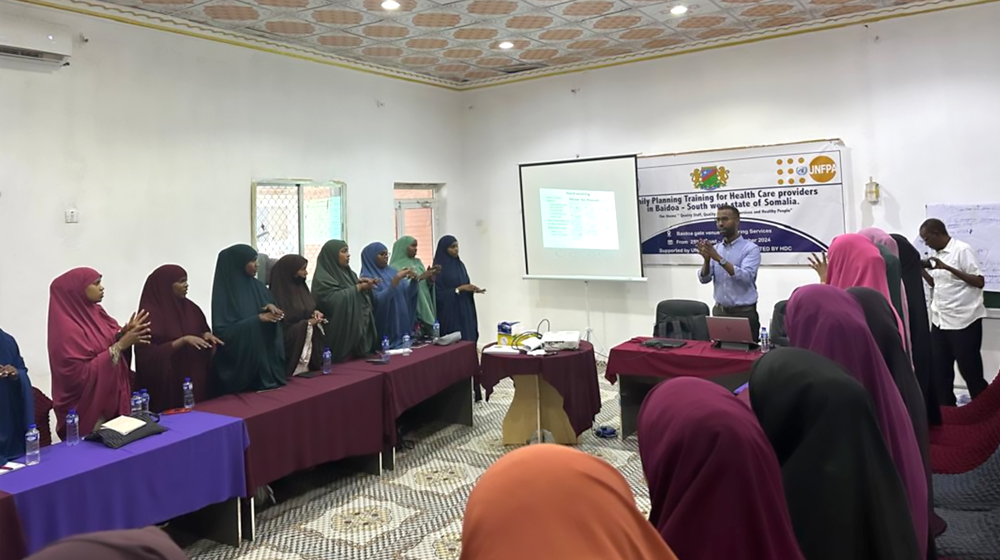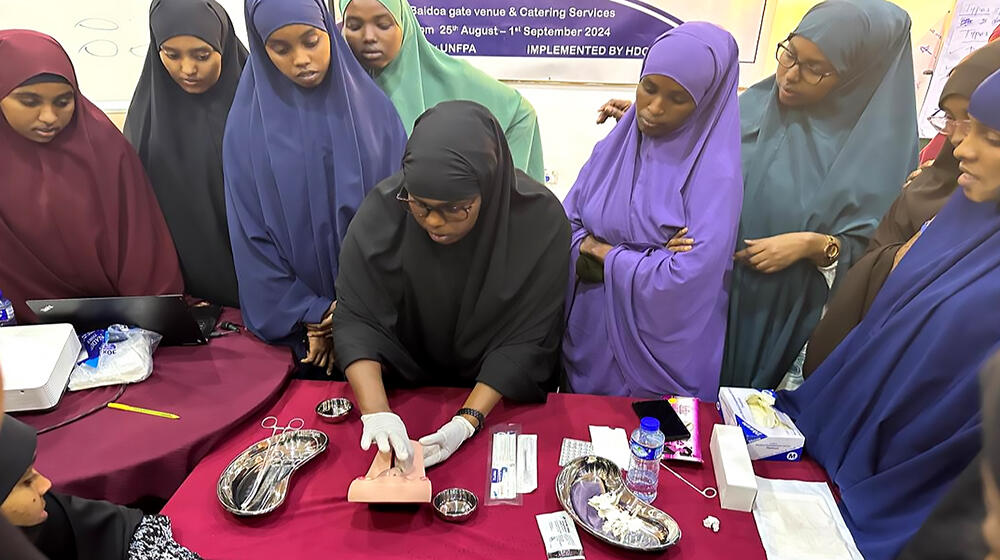Baidoa, Southwest State, Somalia – From August 28 to September 3, 2024, the United Nations Population Fund (UNFPA), in collaboration with the Federal Ministry of Health, successfully conducted an intensive eight-day family planning training program in Baidoa, Bay region. The training brought together 31 frontline health workers from 18 different health facilities, including four hospitals and 13 Basic Emergency Obstetric and Newborn Care (BeMONC) facilities across the region.
The primary objective of this initiative was to enhance the capacity of healthcare providers to deliver high-quality family planning services, with a strong emphasis on a human rights-based approach. The training utilized a comprehensive curriculum developed by UNFPA in partnership with the Federal Ministry of Health. The sessions were led by newly trained family planning trainers, ensuring the dissemination of updated and standardized knowledge across the participating states.

Participants, including doctors, nurses, midwives, and other health professionals, were equipped with the necessary competencies to provide holistic and quality family planning services. The training covered essential topics such as:
- Counseling clients for informed choices.
- Screening clients for appropriate family planning methods, including relevant history and physical examinations.
- Initiating clients on their chosen family planning methods.
- Administering injectables like DMPA-SC (Sayana Press).
- Ensuring infection prevention in family planning services.
- Insertion and removal of contraceptive implants such as Implanon NXT and Jadelle.
- Insertion and removal of the Copper T intrauterine contraceptive device.
This capacity-building effort is expected to have a significant impact on the quality and uptake of family planning services in the Bay region. With these newly acquired skills, the trained health workers are poised to implement effective family planning services in their respective facilities, addressing the high unmet need for contraception and contributing to an increase in the contraceptive prevalence rate (CPR) in the region.

This training is part of UNFPA's broader strategy to reduce maternal mortality rates in Somalia, which remain among the highest in the world. By empowering local healthcare providers with the knowledge and skills needed to deliver critical reproductive health services, UNFPA is not only addressing immediate health needs but also working towards building the capacity of Somali institutions for long-term sustainability.
The success of this training underscores the importance of continuous education and support for healthcare workers in Somalia, as they play a pivotal role in improving the health outcomes of women and families across the country.



